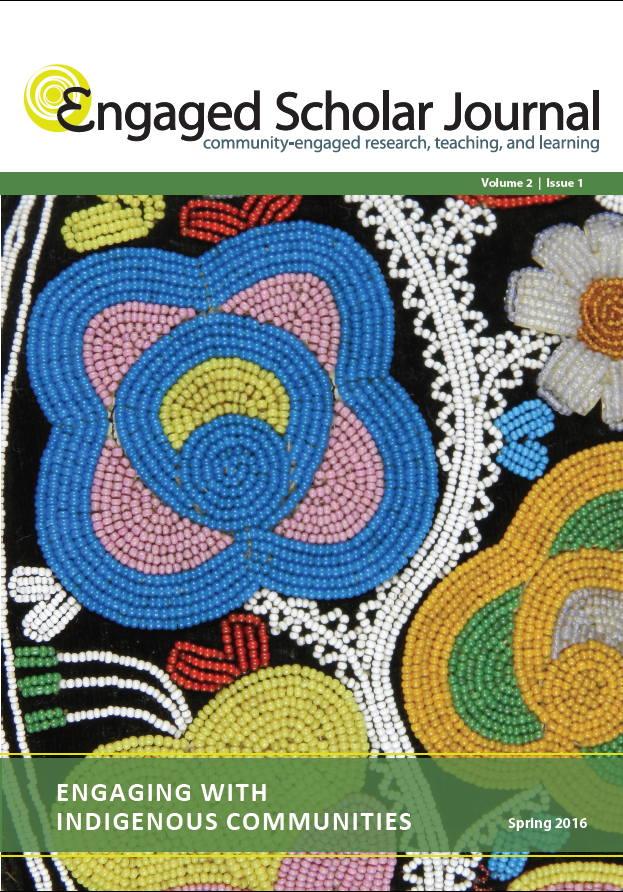Effectively Engaging with Indigenous Communities through Multi-Methods Qualitative Data Collection and an Engaged Communications Plan
DOI:
https://doi.org/10.15402/esj.v2i1.197Keywords:
engagement, Indigenous, Aboriginal, community, engaged scholar, capacity building, entrepreneurship, research methods, qualitative methodAbstract
A research project on social and economic capacity building through Aboriginal entrepreneurship employed a highly engaged approach with communities in northern Saskatchewan, Canada. The involved communities were viewed as research partners, and the research team applied a comprehensive communications plan to provide community members with relevant and timely information about the project and summaries of its outcomes as those results emerged. The study was designed to empower those who traditionally had been viewed as participants on whom research could be conducted, and ensure that the research was instead conducted with and for them. This research project encouraged youth and adults to express their perspectives in new and engaging ways that gave them the opportunity to more meaningfully have their voices heard. One important outcome from engaging more with communities was that research team members felt more engaged with their own project.
Downloads
Published
How to Cite
Issue
Section
License
Authors who publish with this journal agree to the following terms:
- Authors retain copyright and grant the journal right of first publication with the work simultaneously licensed under a Creative Commons Attribution License CC BY 4.0 that allows others to share the work with an acknowledgement of the work's authorship and initial publication in this journal.
- Authors are able to enter separate, additional contractual agreements for the non-exclusive distribution of the journal's published version of the work (e.g., post it to an institutional repository or publish it in a book), with an acknowledgement of its initial publication in this journal.
- Authors are permitted to post their work online (e.g., in an institutional repository or on their website) after the publication of their work in the Engaged Scholar Journal.
- Please note that while every opportunity will be taken to ensure author participation in the editing process, due to time constraints final copyediting changes may be made before publication to ensure APA adherence throughout all submissions.




